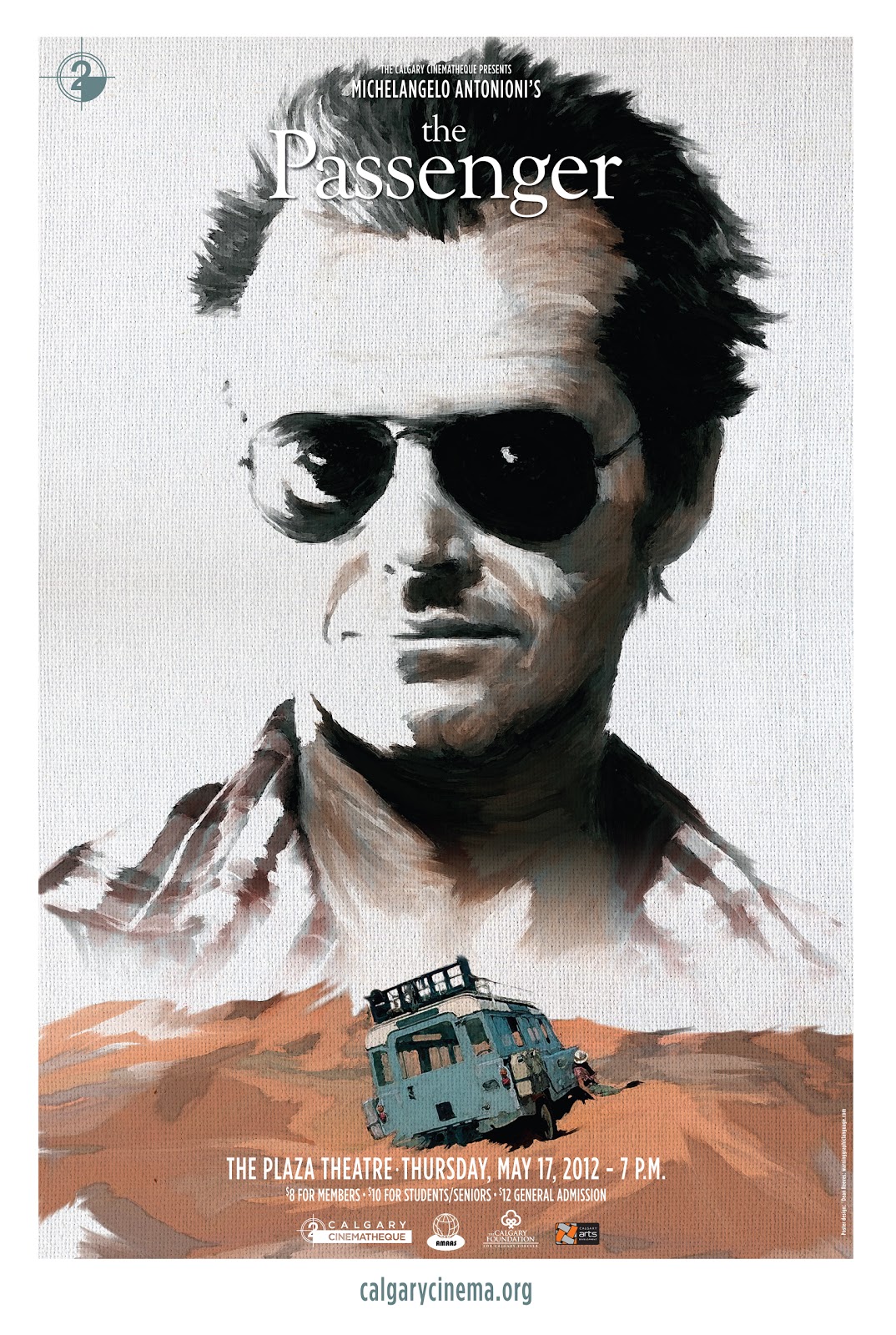Summary:
A war correspondent, frustrated with his work and unable to find the war he’s supposed to cover, takes up the identity of a dead man who looks similar to him, only to find his plan may have many flaws.
My Thoughts:
As with any cinephile, finding the next great film is always a challenge. I personally tend to look for recommendations from directors, actors, or critics I like, and if you read this blog frequently then you already know that Ingmar Bergman (“Persona” , “Sawdust and Tinsel”) is my favorite director, so any recommendations from him I take quite seriously. Stumbling round Reddit one evening, I found a Bergman quote that immediately got my attention.
“Fellini, Kurosawa, and Bunuel all move in the same field as Tarkovsky. Antonioni was on his way, but expired, suffocated by his own tediousness.”
That’s a pretty bold statement, and also quite a backhanded compliment.
If anyone said I was on my way to making a movie like Fellini, Kurosawa, Bunuel, or Tarkovsky I’d be ecstatic- they’re the best of the best after all… Still, I thought that if Bergman believed Antonioni tedious, I certainly would think the same. Nevertheless, I looked into Antonioni’s career and discovered that I’d already had a brush with it when I watched “Blow-Up”. I found “Blow-Up” to be an entertaining film, but I ultimately thought Brian De Palma’s remake “Blow Out” was superior. (I also started “L’Avventura” back when Filmstruck.com was still around, but it was late, and I ended up passing out not a half hour into it).
But as I started “The Passenger”, I found myself entranced. While I will admit this film moves a bit slowly, the direction is beyond brilliant, Jack Nicholson is stupendous, and the themes and story will stay with me for a long time.
I used to be somebody else, but I traded him in.
David Locke (Jack Nicholson, “The Shining” ) is a war correspondent in Africa. After Locke is unable to find the war he’s supposed to cover, he returns to his hotel where he meets Robertson (Charles Mulvehill, “The Last Samurai”), a man whom looks remarkably similar to him. After Robertson dies of natural causes, Locke decides to take Robertson’s place and let his old persona die. As Robertson/Locke assumes this new life, he realizes that the old Robertson had plenty of secrets, which Locke slowly uncovers. Meanwhile, Locke’s wife Rachel (Jenny Runacre, “Jubilee”) searches for Robertson, believing that she might find some closure. As Locke continues to flee, he runs into an unnamed Girl (Maria Schneider, “Last Tango in Paris”) whom helps him on his quest to escape his past.
Within the first fifteen minutes of this film I believe that you, the viewer, should be able to tell if you’ll enjoy this movie or not. Antonioni’s style is so bold that I expect new viewers to be polarized; it’ll either hook you or repel you. The movie starts slowly, as the above Bergman quote might lead one to believe. The first ten minutes of this film just depict Locke wandering aimlessly around the desert; in fact, ninety-percent of this film is just Jack Nicholson wandering around, not really sure of himself or what he’s supposed to do. It’s the way in which Antonioni shows this aimlessness is what gives the film meaning. In a way, Locke’s indecisiveness about his career and who he wants to be is meant to mirror humans’ perception of the seemingly meaninglessness of life. To use the only repeated line in this movie: “What the f*ck are you doing here with me?”
This seems to be the main question Antonioni loves to mull over, but he doesn’t stop there; he seems to wrestle with the eternal questions, those questions we as humans are doomed to repeat to ourselves over and over again until the sands of time stop. What exactly is the point of all of this? Why are we here and what are we supposed to be doing? Who am I, really? And does any of it matter in the long run?
It’s no surprise to me that Bergman compared Antonioni to Bunuel, Tarkovsky, Kurosawa, and Fellini; all of these filmmakers seemed caught up in those lines of questioning, all of them do dance in the same field. These directors seem more intent on examining the human condition than they do providing an escape, and for some people, like myself, that is exactly what I’m looking for. For other people, this will be a very slow, very dry film (I’m sure my parents wouldn’t make it twenty minutes into this movie).
For almost the entire movie, I was planning to give this film a four star rating, but the last shot changed my mind. The ending of this movie is really what sets it above a lot of films I’ve seen. The final shot lasts close to five minutes, and the intricate staging and movement of the camera is just wonderful, and the final line of the film is both heartbreaking and harmonious to the whole of the film.
Verdict:
I really enjoyed this movie, more than I actually thought I would. Keep in mind that the film does move slowly, but it is absolutely worth the wait, especially if you’re the kind of person who finds yourself questioning the nature of your reality.
This is a far better film than “Blow-Up”, and it really makes me want to check out more of Antonioni’s work. Watch for a review of “L’Avventura” in the coming weeks; I have intentions to watch that very soon (I’ll try to go back to review “Blow-Up” at some point. Though I don’t recall the film itself being remarkably amazing, David Hemmings (“Profondo Rosso/ Deep Red “) was pretty great if I remember right).
Review Written By:






